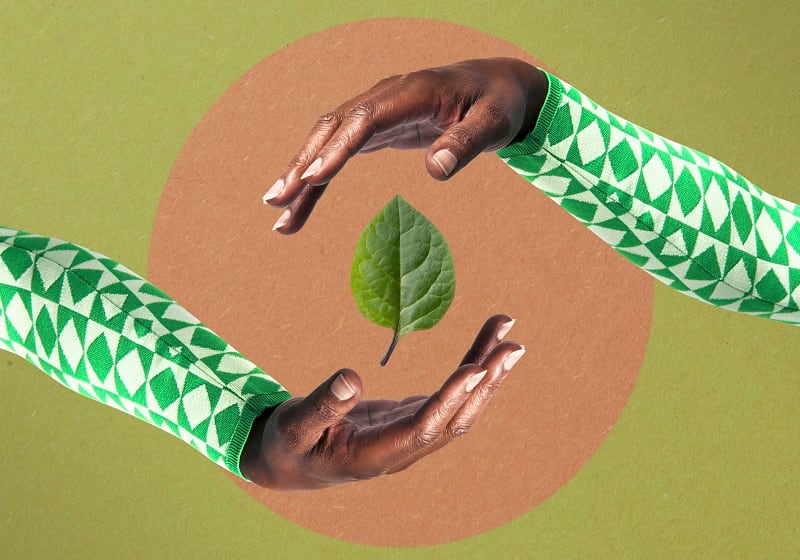“People are becoming more focused on resources; they're thinking more like businesses do about these issues. So, rather than really prioritizing a very emotive issue like ocean plastic about it harming wildlife and visually damaging the environment to the fact that people are really more focused on water shortages or more focused on food shortages in America.”
US consumers feel more culpable for climate change, as water and food shortage concerns tick up
In a global survey of consumers, Mintel found that 51% of them believe their country is suffering from climate change, which was up from 44% in 2021. And US consumers are increasingly admitting that their country is a major reason for climate change, Cope noted.
“Americans, compared to the general public, definitely feel a strong sense of culpability ... because every one of those countries where we say to them, do you believe your country is contributing to climate change? It's always a minority who say that. In America, essentially it's 43% who say, ‘Yeah, America is contributing to climate change,' and that's eight points above the average we get from the sample.”
While plastic pollution is still a major environmental concern, "it's been overtaken by water shortages," Cope said. Plastic populations concerns have fallen from 36% in 2021 to 32% in 2023, with 11% of US consumers citing it as their #1 concern, "up 12 points in three years," he added.
When it comes to educating themselves on environmental issues, consumers "get savvier because of activists, and ... they learn very quickly about the reality of things," Cope said. When it comes to understanding environmental issues, 36% of consumers learned through activists, and the same percentage agreed activism that disrupts airports or traffic should be punishable by the law.
Putting carbon offsets under the microscope
As consumer attitudes are changing around climate change and sustainability, CPG brands are focusing on carbon offsets and reducing plastic from their supply chain. However, the environmental impact and how much energy these initiatives need should be further investigated, Cope explained.
“The problem of carbon offsetting is companies taking a solution, which is a long way away and difficult to manage or ascertain. And two, they're not changing their behavior," Cope said. "We do have to change our behavior on an individual level on the corporate level.”
The Mintel report found that 66% of global and 40% of US consumers would prefer CPG companies and brands reduce carbon emissions instead of relying on carbon offsetting. Investigative journalists have "attacked the veracity and the validity of carbon offsetting” and concerns around “additionality,” Cope said.
Many of these carbon offset programs aren't actually new projects but tapping into already existing conversation efforts, he explained. Beyond whether these projects are net new, carbon offset programs are often "very difficult to prove their hard work,” and the benefits from a carbon offset program will be years in the making, he added.
"Many companies assertions around carbon neutrality or hitting Net Zero are grounded in offsetting. It's a massive challenge because I don't think it's going to be accepted by people as a credible solution," Cope said. "When you get products talking about their carbon neutrality, it's going to get immediate distrust from consumers."
Assessing energy consumption of plastics vs. alternatives
While acknowledging that reducing plastic in products can have an environmental benefit, it’s important for brands and consumers to look at the total energy used in creating a product and using that as a barometer of the sustainability of a product, Cope noted.
“It's quite easy for brands to make claims about reducing plastic in their packaging or do ... less impactful packaging launches, when the biggest impact might be their water usage or their biggest their energy usage,” he added.
"The reality is you might do a lifecycle assessment and find out that plastic actually has a lower impact than paper or glass in packaging because plastic is very light when it comes to distributing things, it doesn't use as much energy, [and] it's recyclable compared to those other materials. Plastics [are] not going away either. So, they're kind of lying to us if they're saying that we're all going plastic-free and eradicating it from our packaging.”
Focusing on what works: Changing habits is key
While efforts like reducing plastic and assessing carbon offsets might not be as straightforward whether they improve sustainability, consumers and brands have a lot that they could do now to improve sustainability overall, Cope said. A big part of what can improve sustainability is changing behaviors around what we eat, which can include reducing the consumption of animal-based meats, he added.
"What needs to happen is behavior change; it doesn't have to be something drastic," Cope said. "America, like lots of countries, is becoming less carnivorous. The people that say they eat meat most meals every day is starting to go down, but the proportion of people who are vegan or vegetarian is not really going anywhere, so it's all going to be about reducing rather than eradicating meat and dairy."


